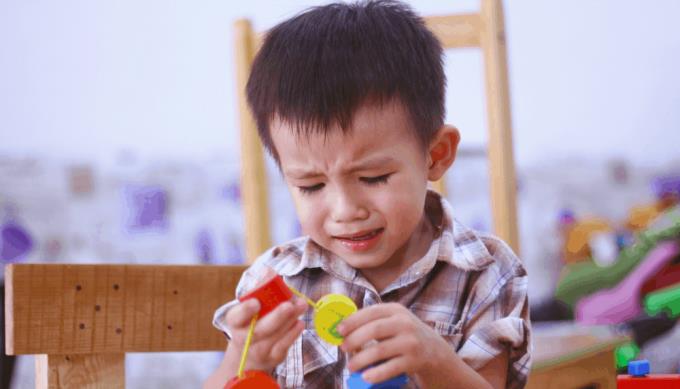Ways to determine an infants caloric needs

Learn how to determine your baby’s caloric needs, including the calories in breast milk and formula, to ensure your infant gets the right nutrition for healthy growth.
Young children of any age can develop lead poisoning from exposure to a variety of agents, such as lead-containing paint, contaminated soil and water.
Does your child have a habit of sipping plastic objects and pencil tips? Are you concerned that your baby might get sick? Lead poisoning is one of the most common environmental health problems in the world. The negative effects of this metal have been known for over 100 years.
In this article, aFamilyToday Health invites you to learn about the causes of lead poisoning, the signs that identify children with lead poisoning, the complications of this condition and how to prevent it.
When lead paint is peeled or cracked, there is a chance that lead dust will be released into the air. Through the act of bringing your hand to the child's mouth, this metal has a chance to enter the child's body. If your child has Pica syndrome , a condition that causes him to crave something he cannot eat, he is also at higher risk of lead poisoning in this way.
Lead cannot be absorbed through the skin. In fact, you can't even smell, taste or see lead particles. Some common sources of lead poisoning include:
Medicine
Paint with lead
Household dust
Glazed cups and bowls
Colorful eye-catching toys and jewelry for children
Water flows from worn or lead-contaminated pipes and hoses
The soil is polluted by exhaust gas from vehicles, industrial smoke or construction works.

This deadly metal accumulates in the bodies of children and us slowly over time. If the baby is accidentally exposed many times, the baby may experience serious brain damage. Although lead poisoning in young children is not so obvious, the most common symptoms include:
Shivering
Lost weight
Muscle weakness
Tired
Convulsions
Constipation
Insomnia
Headache
Vomiting
Anemia
Groggy
Not good
Kidney damage
Having a hearing problem
Unusual pain, cramps.
Testing for lead poisoning in young children can only be done when the baby is 6 years old because many of the above symptoms will not manifest fully.

Lead poisoning affects communication between nerve cells and the brain. It also interferes with a child's normal development. This can lead to a drop in IQ, loss of ability to learn, and even problems with growth. Some other complications your baby is at risk for include:
Comatose
Poor height development
Underdeveloped hearing
Poor fine motor skills
Having trouble concentrating
Have a hard time studying
Develop behavioral problems like aggression and hyperactivity.
Please refer to the article The important rumor of fine motor skills in children
The first step in the treatment of lead poisoning in young children is to locate and eliminate the source of the poisoning. Then isolate the baby from this area.
In more severe cases, a procedure called chelation therapy may be used to look for heavy metals in the body and then to clear them through the urine. The baby's recovery process will take quite a while.
Parents can take some simple home precautions to protect their baby from lead poisoning, such as:
Hand washing and toys: To minimize the risk of lead poisoning by bringing hands to mouth after contact with lead poisoning soil or dust. Parents should wash their hands after babies do outdoor activities, before eating and before going to bed. In addition, periodic cleaning of toys is also a necessary measure.

Regularly clean living areas, window sills, or other easily soiled places with the right cleaning solution.
The location for shoes should be away from the children's play area indoors to avoid the risk of lead poisoning from dirt on the sole of the footwear.
If your home has an old plumbing system, let the tap run for about a minute before using it. In addition, cooking for children with purified water or filtered water is also a suggestion.
Proper nutrition will help reduce your body's risk of absorbing lead. Another important thing that you shouldn't ignore is to make sure your whole family gets enough iron, vitamin C and calcium each day. Prized and healthy foods include:
Milk
Red meat
Cheese
Green vegetables
Citrus fruits.
If you suspect that your child has lead poisoning, parents should bring their child to the hospital to be examined and treated promptly, to avoid dangerous complications.
Learn how to determine your baby’s caloric needs, including the calories in breast milk and formula, to ensure your infant gets the right nutrition for healthy growth.
Discover the top 5 smartest dog breeds in the world, including Border Collie, Poodle, German Shepherd, Golden Retriever, and Doberman Pinscher. Learn about their unique traits and why they are considered the most intelligent dogs.
Discover 7 nutritious and delicious ways to cook egg porridge for babies, including recipes with cheese, pumpkin, tomato, and more. Learn how to prepare baby-friendly egg porridge with our expert tips.
After a series of medical measures they obtained a complete human vascular system profile.
Watermelon is one of the fruits that many people love, not only cheap but also delicious, nutritious and refreshing in the summer. To get delicious watermelon pieces, show off your housewives, your artistic talents to cut beautiful pieces of watermelon.
aFamilyToday Health - The digestive system and body in each baby is different. Parents need to recognize notes to deal with when babies have a food allergy!
Babies need many factors for perfect development. aFamilyToday Health shares with parents things to keep in mind when babies are 8 weeks old so that parents can take care of their babies the best!
Babies need many factors for perfect development. aFamilyToday Health shares with parents things to keep in mind when babies are 18 weeks so that parents can take care of their babies the best!
Babies need many factors for perfect development. aFamilyToday Health shares with parents things to keep in mind when babies are 28 weeks old so that parents can take care of their babies the best!
Babies need many factors for perfect development. aFamilyToday Health shares with parents things to keep in mind when babies are 32 weeks old so that parents can take care of their babies the best!








